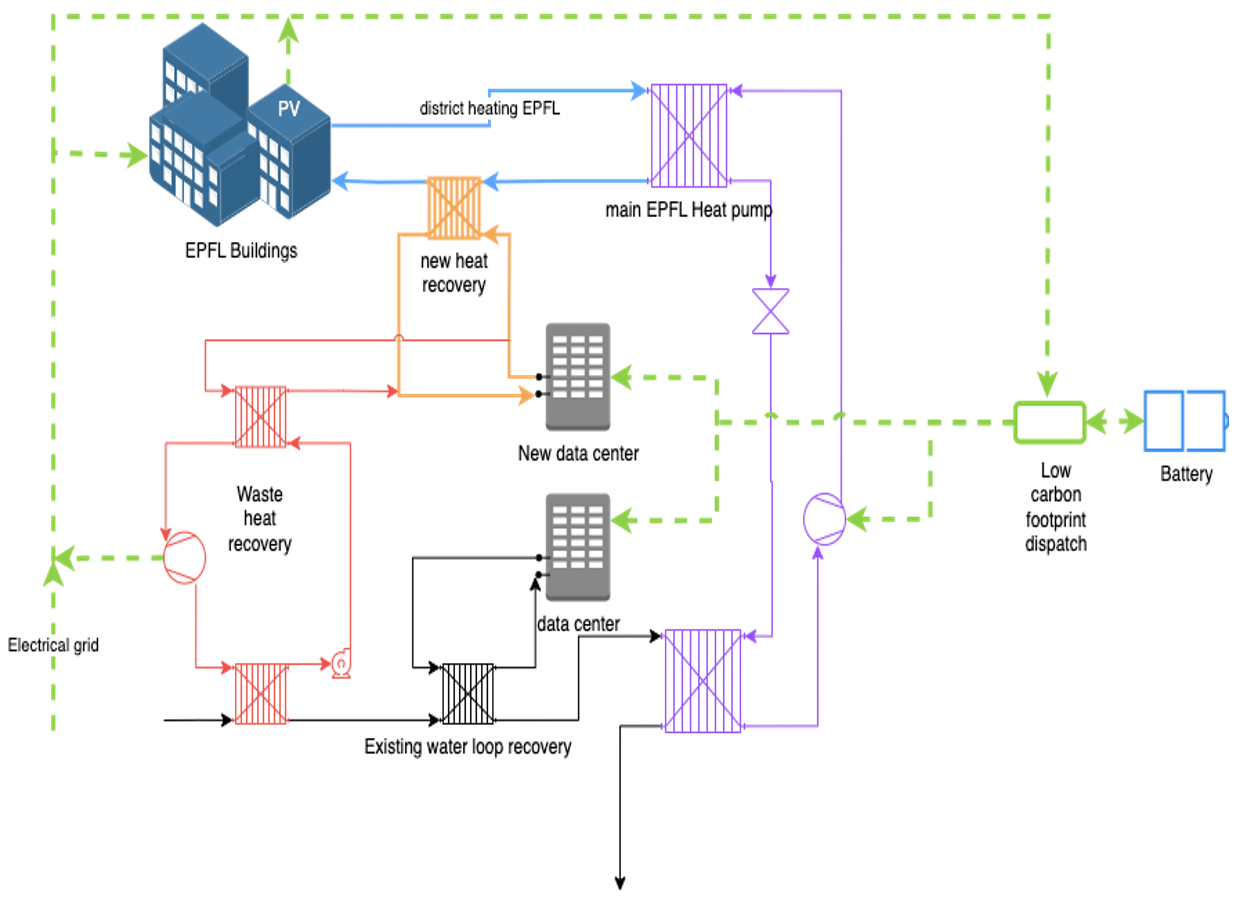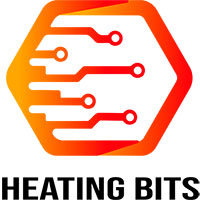Research LineMinimal-energy computing and storage cloud platforms |
Developing technologies and methodologies to minimize the carbon footprint of data centers
Team
| Atienza Alonso David |
| Dujic Drazen |
| Maréchal François |
| Matioli Elison |
| Paolone Mario |
| Schiffmann Jürg Alexander |
Data centers(DCs) use 2% of global energy and will reach 10% by 2030. This DCs expansion is associated with key energy and climate-related challenges, namely impact on the power grid, inefficient energy usage and high electricity-end-use carbon footprint. Switzerland, as one of the European countries with the highest number of DCs, is highly concerned by this evolution.
Indeed, uncontrolled integration of DCs’ into the power grid increases the overall system’s load stochasticity, necessitating larger system reserves for grid balancing. Therefore, DC's operating as well as other grid users' cost increases. Furthermore, to reduce their carbon footprint, DCs need to optimise their operation (a) accounting for the CO2eq. content of the (local and grid-supplied) electricity, (b) considering local renewable power supply; (c) valorizing the waste heat for instance integrating it in the local district with heating system and (d) producing electricity from organic Rankine cycles (ORC) fed by the DC low entropic waste heat.
Heating Bits projects aims at developing innovative solutions addressing all these aspects. Specifically, the project focuses on improving DCs’ energy efficiency and reducing their carbon footprint with special focus on the new EPFL DC. This will be achieved by developing, and experimentally validating, a multi-horizon predictive control framework leveraging advanced power conversion solutions and efficient in-chip servers cooling to operate the EPFL DC and the related campus district system with the least carbon footprint and the lowest energy cost.
The project will achieve the project objectives through:
a) the optimal integration of the EPFL DC heat recovery to supply during (i) the heating period, the local district heating system, reducing the heat load and increasing the coefficient of performance (COP) of the EPFL heat pumps and (ii) the non-heating period, the DC with electricity congenerated from DC's waste heat by means of an organic Rankine cycle (ORC).
b) the deployment of a direct current power distribution architecture for DCs that allow for a more efficient integration of direct current sources, such as PVs and energy storage systems (i.e., batteries), valorising recent improvement on the field in terms of energy efficiency and availability.
In Phase I (2023-2025), the project partners will focus on the development of the above-mentioned novel solutions and their deployment into a first-of-its-kind demonstrator benefiting the entire EPFL campus. This demonstrator centered around the EPFL DC facility, managed by EcoCloud, hosting racks populated with dismissed EPFL servers, providing them with a second life. Furthemore, the demo infrastructure will include the EPFL DC’s photovoltaic power generation and the MW-class battery energy storage system made available by the EPFL Distributed Electrical Systems lab, along with the EPFL district heating/cooling system (illustration below)

In Phase II (2026-2029), the Heating Bits project partners will aim at scaling up their solution through:
a) the operation of the full new EPFL DC by means of its inherent modularity
b) the knowledge and technology transfer, through the EPFL EcoCloud, to industry-grade Data Centers such as Amazon, Google, Microsoft, and Huawei.
c) the continuation of the servers second-life programme at EcoCloud, enabling a further utilization and longer lifetime of existing EPFL servers, contributing to maximize IT sustainability of the EPFL campus.
Videos

Visit our website
News
| Getting control over our data centers |
Related Publications
| Is the powersave governor really saving power? | |||
| Huang, Darong; Costero Valero, Luis Maria; Atienza Alonso, David | |||
| 2024-02-12 | Conference Paper |  | |
| Experimental Validation of a Unified and Linear State Estimation Method for Hybrid AC/DC Microgrids | |||
| Lambrichts, Willem; Paolone, Mario | |||
| 2023 | Proceedings of the 2023 IEEE Belgrade PowerTech | ||
| Modeling and Design Optimization of Loosely Coupled PCB Spiral Coils in Inductive Power Transfer Systems | |||
| Du, Xiaotong; Dujic, Drazen | |||
| 2023 | IEEE Transactions on Power Electronics | ||